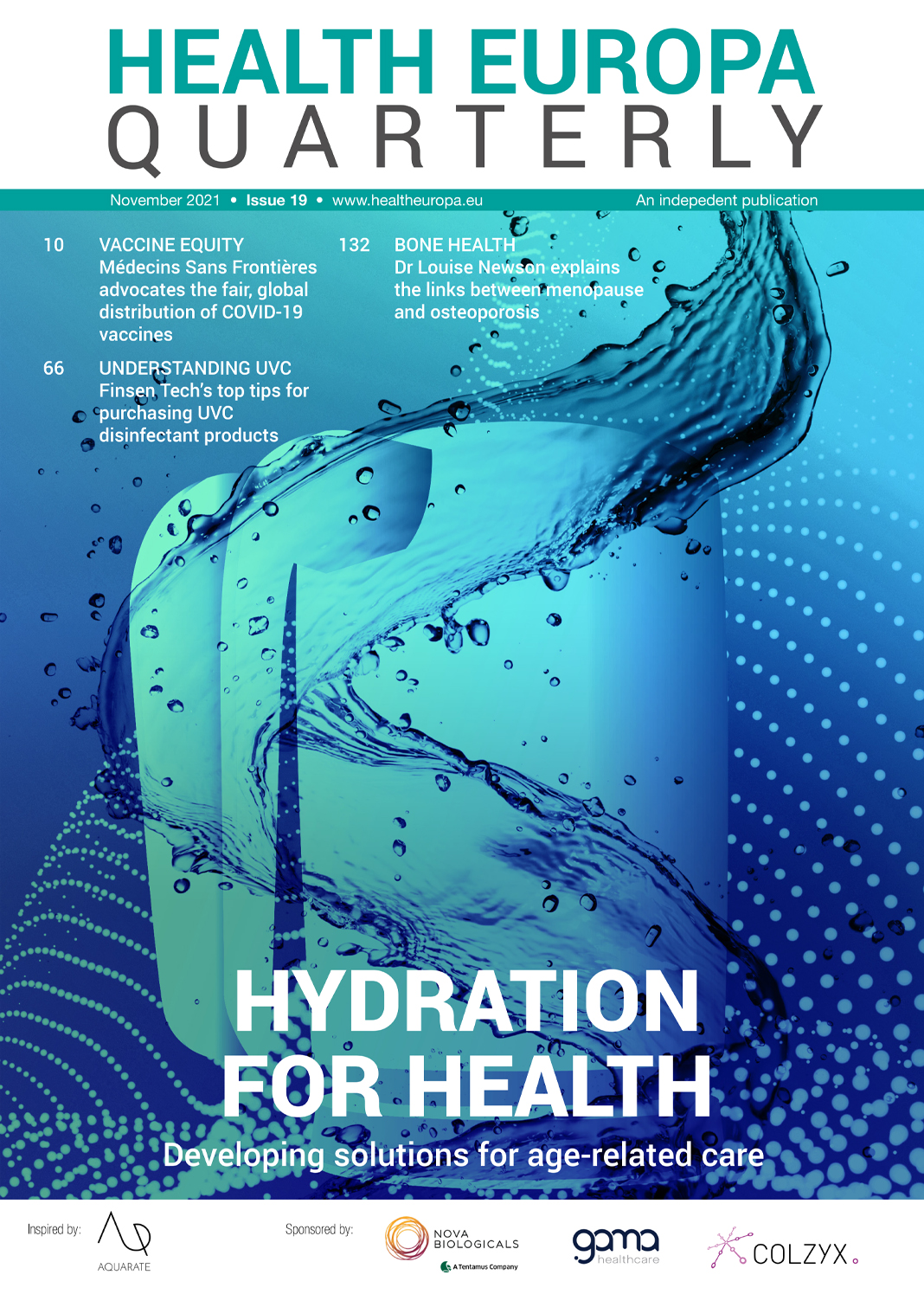Welcome to Health Europa Quarterly Issue 19, which comprehensively investigates the current health landscape, from combatting COVID-19 and tackling healthcare inequalities to women’s health and technological medical innovations.
How can we best protect our most vulnerable members of society? In September this year, the European Commission announced a new initiative which seeks to support the infrastructure for high-quality, accessible, and affordable care that can benefit all generations. Addressing the European Parliament, the Commission’s President, Ursula von der Leyen, announced plans for a European Care Strategy which marks the Commission’s commitment to address and dilute the challenges faced by people delivering care and those receiving it, ultimately empowering them to secure the “best care and the best life balance for them.” As part of its long-term care plan, which acknowledges the projected increase in those needing long-term care from 30.8 million in 2019 to 38.1 million in 2050, the Commission aims to support EU countries in reforming their national systems for long-term care and bolster social economies to protect the holistic wellbeing of EU citizens. Though many applaud this move to acknowledge social rights in tandem with formal and informal care reformations, focus in the short term will undoubtedly be fixed on mitigating the impact of COVID-19. Indeed, a recent study from the University of Oxford revealed the striking reduction in life expectancy across western Europe as a result of the pandemic, the biggest decline since the second world war.
The pandemic has no doubt triggered a widespread increase in public health concerns. With an ever-growing backlog of hospital appointments, and a possible resurgence of COVID cases during the winter months, governments are again focusing their gaze on vaccines as a strong line of defence. As well as encouraging vaccine uptake among younger members of society, governments in wealthier nations are now offering booster shots to older adults and those who are at higher risk of catching the virus. Yet, while healthier populations roll out additional doses to curb a potential spike in infections, those in lesser developed countries are still desperately in need of initial doses. As an opening to this issue, HEQ speaks to Leena Menghaney of Médecins Sans Frontières about the necessity for equitable, global vaccine distribution and the impact of the vaccine TRIPS waiver. By the same token, Dominic Wilkinson, a Professor of Medical Ethics at Oxford Uehiro Centre for Practical Ethics, shares his stance on COVID-19 vaccinations for children and we also hear from consultant obstetrician and Vice President of the Royal College of Obstetricians and Gynaecologists, Dr Patrick O’Brien about vaccine hesitancy among pregnant women.
Elsewhere in the publication, we speak to Professor Angela Kydd of NHS Grampian about dehydration in older adults and why a pragmatic and reverent approach to care is needed in order to ameliorate care settings for both staff and care residents. Luke Price from the Centre for Ageing Better reveals how the pandemic has affected physical activity levels in older adults and why movement is integral to ageing better. Physical activity can also be incredibly important in reducing the risk of osteoporosis, a condition that affects an estimated three million people in the UK alone. Head to page 132 where we interview Dr Louise Newson about how this condition is impacted by the menopause and ways in which women can equip themselves with the knowledge to optimise their health. Our diverse Technology and Innovation section covers everything from AI and wearable healthcare technology to virtual simulation that offers an insight into what it is like to live with dementia.
I hope you find this issue as informative and insightful as I have in its collation, and should you have any suggestions for topics we should cover please let us know by emailing editor@healtheuropa.com
Lorna Malkin
Editor
Health Europa Quarterly



